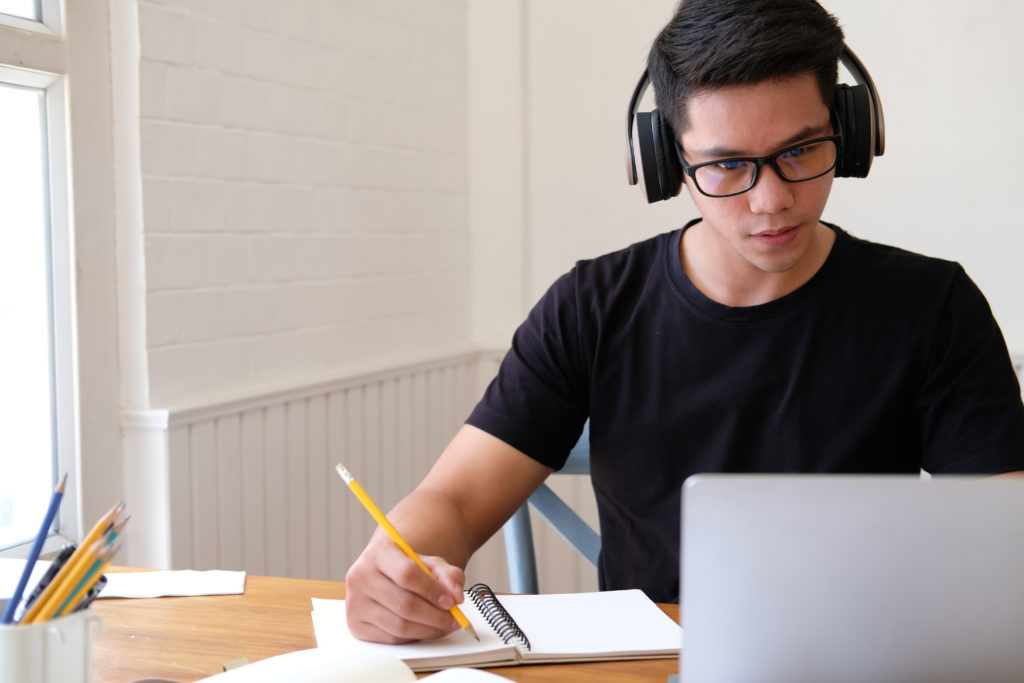Quick Hits
Daily brief research updates from the cognitive sciences

Studying online
We’d all like to be able to learn easily. Read something and remember it, listen in on a call and never forget anything, but we all know, well the vast majority of us, that it isn’t always that easy. Over the years and decades many practises have also been developed to help learning, ranging from learning in your sleep to meditative methods. But do these really help?
Well, this is what Shana Carpenter et al. of Iowa State University wanted to find out. To do this they reviewed and analysed over 200 studies ranging over 100 years to find some clear answers. And the results?
The results show that basically two strategies are the most effective and therefore the most important.
These are not sexy new techniques – in fact quite boring. They are spacing and retrieval practice. That’s it!
Spacing is the concept of spacing learning out into more bite-sized chunks. For example, in one study medical students received training on surgery training over three weeks vs. one intensive day. Those in the spaced learning group performed better one week after training had finished but also, importantly, one year later.
I have reviewed spaced, or punctuated, learning previously. I have also reported on brain processes and fatigue during mini learning and break phases (here and here).
The second technique is also a low tech, old-fashioned, and effortful: the technique of learning retrieval. This simply means trying to remember what you have learned. This is the high effort version and probably the one we also try to avoid, particularly when by ourselves. This is more effective than the easy method which is just rereading your notes or the textbook again. The important part seems to be the active retrieval part, actually making an effort to get it out again.
So, this on one hand is a bit boring, no new sexy techniques. It is also really important – two simple techniques will improve learning for anyone and anyone can do it!
So, if learning something new, space it out it bite-sized chunks, and make an effort to remember what you covered and learned.
That’s it, that simple.
Now let’s see if I can remember what I have just written…

Andy Habermacher
Andy is author of leading brains Review, Neuroleadership, and multiple other books. He has been intensively involved in writing and research into neuroleadership and is considered one of Europe’s leading experts. He is also a well-known public speaker, speaking on the brain and human behaviour.
Andy is also a masters athlete (middle distance running) and competes regularly at international competitions (and holds a few national records in his age category).
References
Shana K. Carpenter, Steven C. Pan, Andrew C. Butler.
The science of effective learning with spacing and retrieval practice.
Nature Reviews Psychology, 2022; 1 (9): 496
DOI: 10.1038/s44159-022-00089-1
More Quick Hits
How Sleep Helps Your Brain Manage Fear
Quick HitsDaily brief research updates from the cognitive sciences leep on i” is common advice for many reasons. Often to consolidate thoughts and help boost creativity. This is a well-known effect. We also know that sleep is the time that helps to...
Video games can boost children’s intelligence
Quick HitsDaily brief research updates from the cognitive sciences ell, this is not the answer many of us would expect, and it goes against other logic of spending more time doing other things such as reading or socialising with friends...
Just how many people get COVID brain?
Quick HitsDaily brief research updates from the cognitive sciences here are many questions still open about COVID and the brain. There is no doubt that long COVID exists, and this can have dramatic impacts on people’s lives. But just how...
Brain networks and losing weight – successfully or not
Quick HitsDaily brief research updates from the cognitive sciences s weight loss all in the mind? Well, with the danger of oversimplifying a complex topic, this latest research shows it is, and shows precisely how and with what networks. So,...
Reversing aging – with poo!
Quick HitsDaily brief research updates from the cognitive sciences ho wouldn't want to age better - well the results of an unsual study are in and the results are promising and may make many of you who are aging prick up your ears. The...
Brisk walking slows biological aging
Quick HitsDaily brief research updates from the cognitive sciences f you want to age better, then walk quicker, or those who walk quicker, age slower. That is the result of a recent study of 400,000 UK adults mapped to genetic markers of age...






